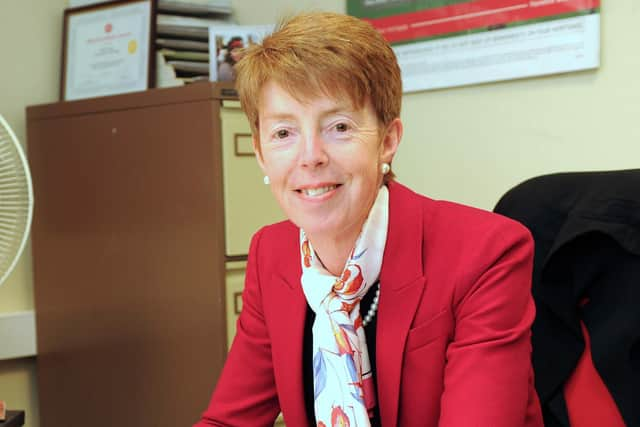Shutting churches and getting rid of clergy would be damaging to communities - GP Taylor
Once upon a time, the Church favoured middle class men from good families, so heavenly minded they were no earthly good. It was the home of the third son of the landed gentry. First son inherited the estate, second went in the army, third became a vicar, whether they believed in God or not.
It is of no surprise that Welby, the current incumbent in Canterbury, worked for eleven years in the oil industry, five of them for the French oil company Elf Aquitaine based in Paris. He was an oil executive steeped in metropolitan sentiment, his faith fuelled by attending Holy Trinity Brompton (HTB). This church was at the forefront of the ‘Toronto Blessing,’ a charismatic wave, where attendees would be dowsed in the Holy Spirit, speak in tongues, and fall on the floor in religious ecstasy. Sadly, not every church has a hot line to God and the Holy Spirit on tap, or the glitz and wealth of talent that inhabits HTB.
Advertisement
Hide AdAdvertisement
Hide AdIn reality, life in a Yorkshire parish is very different and often difficult.


You cannot run a church like you would run a business. St Mary’s Whitby is not Tesco central office. Trendy ideas dreamt up by spotty teenagers in Church House to bring in more people don’t work. Countless visions and strategies in business buzz words and new-speak do more harm than good. What the hierarchy of the church fail to realise is that they are stewards of the Kingdom of God and not directors of Marks & Spencer. “It’s not just God, it’s M&S God,” won’t put bums on seats.
In my conversations with various bishops, the subject soon comes around to money. It is estimated that the Church of England has a large endowment of £10bn which generates approximately £1bn a year in income. This is added to by the yearly £329m from churchgoers' donations.
Yet, despite this vast wealth, there appears to be a plan to close churches, get rid of paid clergy and replace them with centres of worship.
Advertisement
Hide AdAdvertisement
Hide Ad‘Myriad’ is a scheme to plant thousands of new, predominantly lay-led churches throughout the Church of England by 2030. To the casual observer this is reminiscent of the library scandal, where librarians were got rid of, and volunteers recruited under the threat of use the library or lose it.
Like the closing of banks, post offices and surgeries, the damage of shutting churches and getting rid of clergy is cataclysmic to local communities, especially in rural areas. It is true to say that the C of E is there for people who never set foot in church. However, at my last church, those who didn’t attend contributed more financially than those who did.
There are over 600 churches in the Diocese of York and only around 230 full time clergy. How can they be cut even more? Throughout the country, the picture is the same. It is as if the C of E is hell bent on self-destruction as it becomes increasingly woke and out of touch. One initiative in Cornwall called ‘On The Way,’ was quickly renamed, ‘On The Way Out’, such was the antagonism towards it from parishioners who believed it was a cover for management of decline.
In one lecture by a senior clergyman, parishioners were renamed ‘passengers’. Was the intimation that they became baggage if they were not for the new direction?
Advertisement
Hide AdAdvertisement
Hide AdThe Diocese of Chelmsford said it would cull 61 posts by 2021 with a further 49 under threat by 2026. Priests are being replaced across the country by ‘Mission Enablers’ paid for from Development Funding. Dioceses can now apply for money from this £45m pot, set aside to support the new, modern, woke, C of E. A bit like the receptionist at the doctor now being called a ‘care navigator’.
Instead of former heads of industry being given high powered positions in the church, how about employing those who know what life is like outside the Lambeth, metropolitan fishbowl?
Normal people aren’t bothered about policies on pronouns or gender, they want a bit of hope and support in a world that looks increasingly more apocalyptic every day. As they walk through their towns and villages, people want to know that the Church is there at a time of need, even if it is just to go in and sit a while.
Historically, there have never been vast numbers of people going to church each week. Four people in church are just as spiritually powerful as 40. Big isn’t always better and local is better than not at all.
Advertisement
Hide AdAdvertisement
Hide AdIt is obvious that the theological calibre of those in key roles within the church is in decline. They speak out on immigration and politics at the drop of a hat, and yet, they have no prayerful solution to the crisis of faith in a ministry within the parishes.
GP Taylor is a New York Times best-selling writer and broadcaster. His latest book ‘Pig in a Pulpit’ is a fictionalised account of his time spent working as both a priest and police officer. It will be released by Markosia Publishing in May.
Comment Guidelines
National World encourages reader discussion on our stories. User feedback, insights and back-and-forth exchanges add a rich layer of context to reporting. Please review our Community Guidelines before commenting.